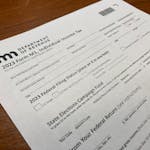 See
more of the story
See
more of the story
Q I'm 60 years old and have never really been good with money. I had a foreclosure three years ago. After the sheriff's sale a realtor friend found me a contract-for-deed house. I keep all my other bills up to date and I've prequalified for an FHA mortgage. The owners of the house who are holding the contract want me to now buy the house, sell it, or let the contract expire and move out. The house is only worth maybe $80,000 -- and I still owe $125,000. So I'm considering letting the contract expire and walking away.
So my question is do I want to buy another house at my age? I can find a lot of nice $90,000 to $100,000 houses for sale ready to move in [but] I'd probably never get it paid off unless I work until I'm 75. Should I just rent something when my contract for deed runs out?
A I would lean toward renting over owning, even though I think the market will slightly favor owning over renting in coming years. For the long-term owner with healthy finances a home looks increasingly attractive.
One way to get to real estate value is to think of the rental and ownership markets as competing for the household shelter dollar. The price-to-rent ratio is much like a price-to-earnings ratio for stocks. The formula for the ratio is (average list price) divided by (average monthly rent times 12).
A ratio below 15 suggests buying beats renting; from 15 to 20 it pays to be extremely wary of buying; and above 20 renting reigns supreme. The real estate website Trulia.com recently ran price-to-rent ratios for 50 major metropolitan areas, including Minneapolis. The ratio for Minneapolis was 13 for the second quarter, down from 15 in the first quarter. (The study compares renting a two-bedroom vs. the cost of buying a two-bedroom condo or townhouse.)
Of course, a favorable market for owners doesn't mean owning a home makes sense for everyone. The lesson of the last five years is that ownership isn't a good investment for a lot of people. For them, renting is the financially savvy choice.
I think that includes you. My concern with you buying another home is that you'll end up with the financial stress of paying a mortgage, homeowners insurance, and property taxes well into the traditional retirement years. It will leave you with a much smaller margin of safety to deal with any setback. You'll have less money to enjoy yourself, too.
Owning strikes me as the riskier choice.
Chris Farrell is economics editor for "Marketplace Money." Send your questions to cfarrell@mpr.org.

